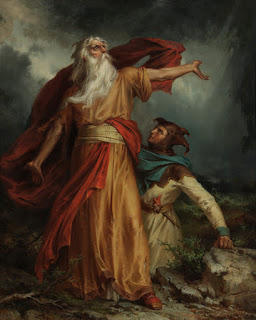Brave New World: A Satirical Masterpiece
Brave New World: Navigating the Dystopian Landscape of Huxley's Satirical Masterpiece
Satire: Unmasking Truth Through Mockery
Satire is a literary device that employs humor, irony, ridicule, or exaggeration to critique and expose societal vices, shortcomings, or absurdities. Through wit and mockery, satire aims to provoke thought, challenge norms, and incite change. It operates as a mirror to society, reflecting its flaws and contradictions with a sharp and often humorous edge.
Brave New World: A Satirical Masterpiece
Aldous Huxley's "Brave New World" stands as a quintessential example of dystopian literature infused with satirical elements. Published in 1932, Huxley envisioned a future society governed by technology, consumerism, and hedonism. Although initially labeled as science fiction, the novel's satirical undertones are unmistakable, as Huxley skillfully critiques various aspects of society through exaggeration and irony.
Consumerism and Commodification of Human Life
One of the central themes satirized in "Brave New World" is consumerism and the commodification of human life. In the World State, citizens are conditioned from birth to consume goods and services, perpetuating a cycle of mindless consumption. The Fordian society, with its worship of Henry Ford and the assembly line, symbolizes the dehumanizing effects of mass production and consumer culture. Huxley satirizes the notion of progress at any cost, highlighting the dangers of a society driven solely by economic growth and material wealth.
Hedonism and Escapism in Brave New World(1932)
Another target of Huxley's satire is hedonism and the pursuit of pleasure at the expense of deeper human experiences. In the World State, happiness is equated with the absence of discomfort, achieved through the consumption of soma, a drug that induces temporary euphoria. Huxley critiques the shallow pursuit of pleasure and the suppression of genuine emotions and desires. Through characters like Bernard Marx and John the Savage, who rebel against the hedonistic norms of society, Huxley explores the inherent dissatisfaction and emptiness that accompany a life devoid of meaning and authentic connection.
Technological Control and Loss of Individuality
Huxley's satire extends to the theme of technological control and the loss of individuality in a highly regimented society. In the World State, technology is used not only to maintain social order but also to manipulate and control individuals from birth. Through techniques such as hypnopaedia and genetic engineering, citizens are conditioned to conform to societal norms and roles, sacrificing their autonomy in the process. Huxley warns against the dangers of unchecked technological advancement and the erosion of human agency, raising questions about the ethical implications of scientific progress.
Political Power and Totalitarianism in Brave New World
Finally, "Brave New World" serves as a scathing critique of political power and totalitarianism. The World State operates as a dystopian dictatorship, where the ruling elite maintain control through surveillance, propaganda, and psychological manipulation. Huxley satirizes the perversion of democracy and the erosion of civil liberties in the pursuit of power and stability. Through characters like Mustapha Mond, the Resident World Controller, Huxley explores the moral compromises and ethical dilemmas faced by those in positions of authority, questioning the legitimacy of systems that prioritize control over freedom.
Conclusion
In "Brave New World," Aldous Huxley employs satire as a powerful tool to dissect and critique the flaws of society. Through humor, irony, and exaggeration, Huxley exposes the dangers of consumerism, hedonism, technological control, and totalitarianism, offering a chilling vision of a dystopian future. By holding up a mirror to contemporary society, "Brave New World" challenges readers to confront uncomfortable truths and consider the consequences of unchecked progress and conformity. As a timeless work of satire, it continues to resonate with audiences, serving as a cautionary tale against the perils of sacrificing humanity on the altar of efficiency and stability.

.jpg)
Comments
Post a Comment